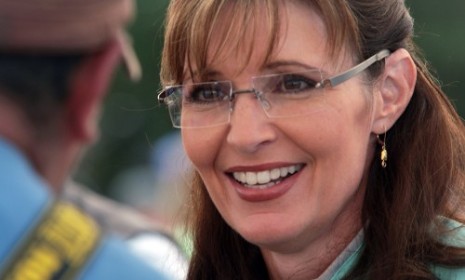The genius of Sarah Palin
Liberals mock Palin, says Tony Lee in The Atlantic, but that's only because she has the power to transform American politics

A free daily email with the biggest news stories of the day – and the best features from TheWeek.com
You are now subscribed
Your newsletter sign-up was successful
If all you know about Sarah Palin is what you read in the media, says Tony Lee in The Atlantic, you probably think she's "just a money-hungry ex-politician devoid of conviction." But listen to the former vice presidential candidate speak, and you'll see she's far from the "bumbling dolt" her critics make her out to be. She is warm, funny, full of "unapologetic feistiness," and relishes attacking President Obama and other Democrats. Liberals dismiss Palin — but that's because deep down they fear her. Palin, you see, has "the makings of a potentially transcendent and transformational figure not only for the conservative movement but for American politics." An excerpt:
"Just as Obama spoke the language of Black and urban America in churches and on the stump, Palin speaks the language of social conservatives. Her personal experiences, especially the birth of her son Trig, and those of her daughter, Bristol (in a lighthearted moment, Palin told the audience that Bristol advocates abstinence by telling teenagers they should hit 'pause before play'), make her testimony about being 'pro-life' more powerful and moving. When Palin shared some of her more personal experiences and struggles with the audience, the room became hushed, the audience noticeably captivated. To state the obvious, these stories signal to social conservatives that Palin has walked the walk."
Read the full article at The Atlantic.
The Week
Escape your echo chamber. Get the facts behind the news, plus analysis from multiple perspectives.

Sign up for The Week's Free Newsletters
From our morning news briefing to a weekly Good News Newsletter, get the best of The Week delivered directly to your inbox.
From our morning news briefing to a weekly Good News Newsletter, get the best of The Week delivered directly to your inbox.
A free daily email with the biggest news stories of the day – and the best features from TheWeek.com